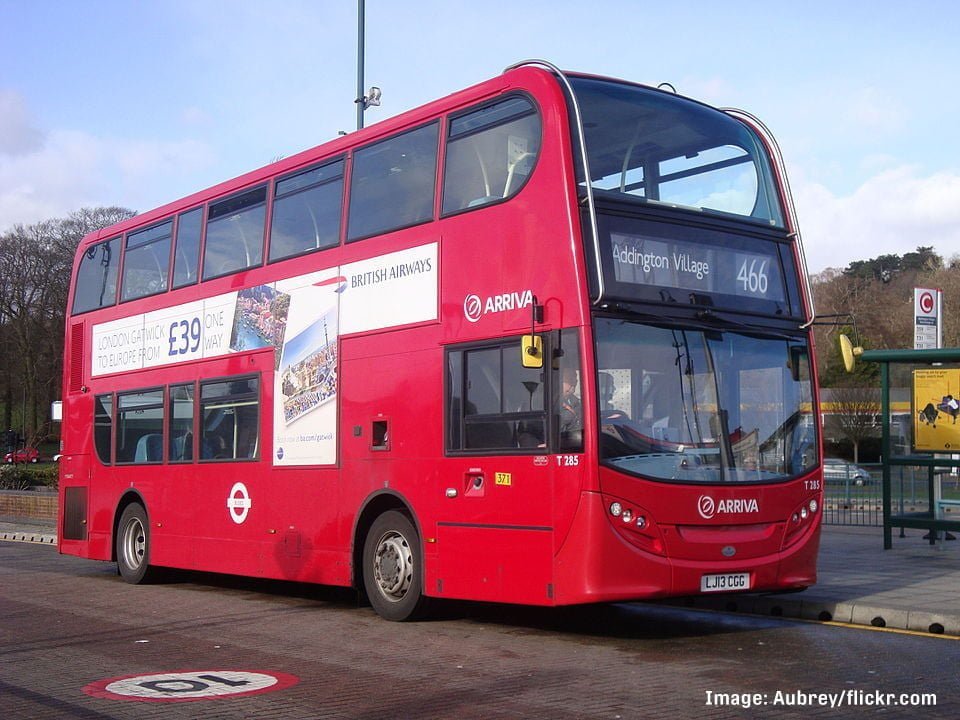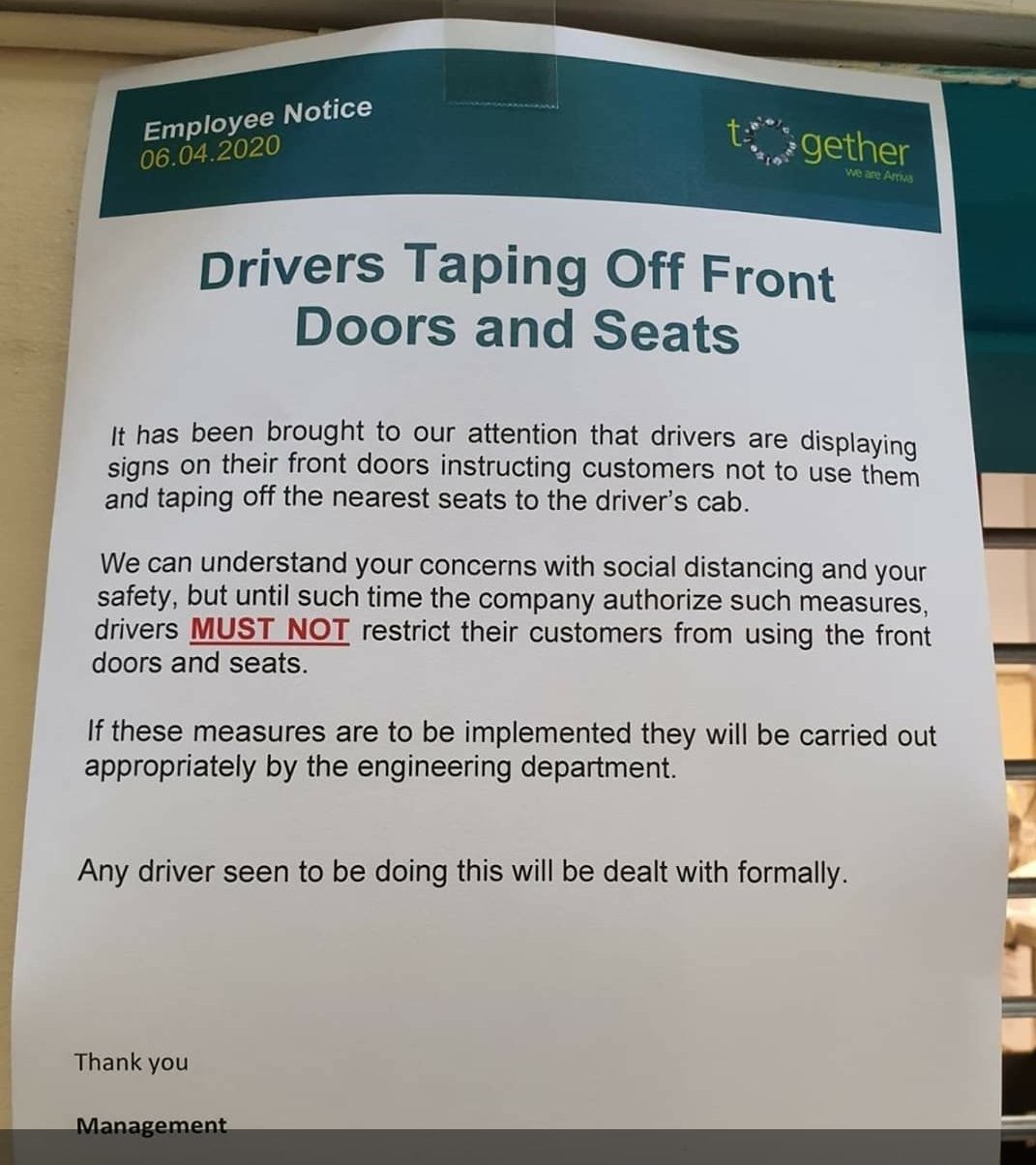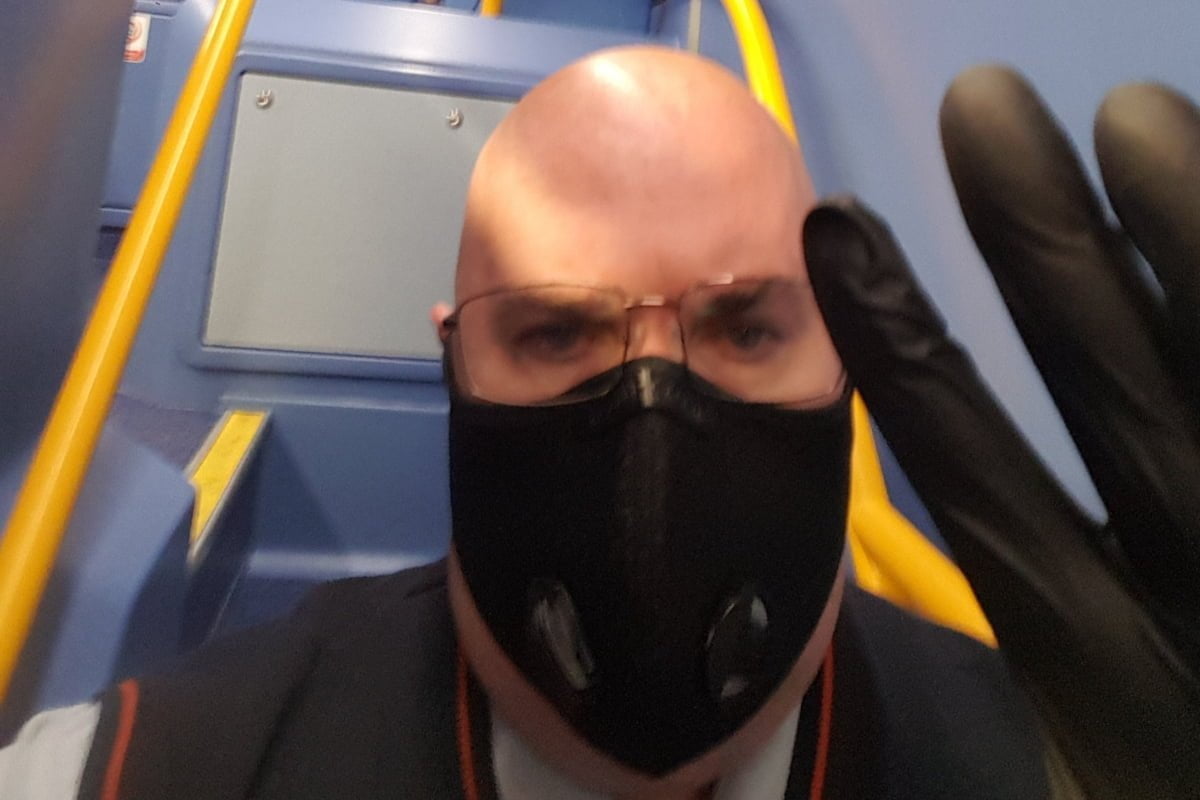Transport workers have been put in the firing line by unscrupulous management, who have shown no concern for the health and safety of staff and passengers. The trade union leaders must give workers confidence to take action.
On 13 April, Mayor of London Sadiq Khan confirmed that at least 21 transport workers in London have died due to COVID-19. Of these, 15 are bus drivers.
This means that the COVID-19 fatality rate is approximately 40 deaths per 100,000 transport workers, and 75 deaths per 100,000 drivers – far worse than the already substantial rate for Greater London as a whole (32.16 deaths per 100,000 people).
At best, Sadiq Khan and Transport for London (TfL), the public organisation that operates and manages all transport in London, have been completely negligent in protecting workers from the virus. At worst, they have callously protected the interests of the private bus companies that operate routes, preventing any further losses in income for the bosses.
Workers at risk
 The companies that operate the buses are known as private concession holders. These include names such as Arriva London, Go-Ahead London, Metroline and others.
The companies that operate the buses are known as private concession holders. These include names such as Arriva London, Go-Ahead London, Metroline and others.
During the coronavirus crisis, these private businesses have been far more interested in meeting the terms of their contracts than in the health and safety of workers or commuters.
Private companies are paid a flat fee to operate bus routes, with fees increasing or decreasing based on performance measures, including fares collected per revenue hour. It is not clear if these terms have been suspended for the duration of the crisis.
But what is clear is that profit is being put ahead of the lives of workers. Yet again, the complex public-private partnership system used by TfL is putting workers and passengers at risk.
Management negligence
 In the past week, TfL has confirmed that some measures will be taken to reduce the risk to drivers and passengers. These measures include a trial for middle-door-only boarding, as well as closing off the front seats of buses. However, this is only a trial on certain routes – which will run for the next three weeks!
In the past week, TfL has confirmed that some measures will be taken to reduce the risk to drivers and passengers. These measures include a trial for middle-door-only boarding, as well as closing off the front seats of buses. However, this is only a trial on certain routes – which will run for the next three weeks!
Prior to this, fearing for their safety, some bus drivers had taken the initiative to implement similar distancing measures themselves. But they were quickly admonished by the bus bosses, who warned that disciplinary measures would be imposed against workers who took matters into their own hands.
All of this demonstrates that TfL is not taking the threat seriously. Management are clearly more concerned about how this will impact on fare recovery. But buses operate at a loss even during normal times. Given that bus ridership has fallen by 84%, therefore, there is absolutely no reason that TfL should even be thinking about collecting fares.
Profits put before lives
In other parts of the country, the risk to drivers cannot be mitigated through the use of middle or rear doors. Many private companies purchase buses with only a front set of doors – again, in the interest of profit over safety and reliability. This means other measures are made all the more important.
Unite national officer for passenger transport, Bobby Morton, said on Radio 4: “I accept that some kind of action has taken place in London. But that’s not the same across the country. What I’m looking for from bus operators is that the risk should be eradicated, not reduced.”
TfL has also reportedly introduced an improved cleaning regime, with the use of antiviral disinfectants on buses. It is not clear what impact this has had on reducing transmission risks. But critically, it does not reduce the risk of exposure due to close contact, where droplets containing the virus are inhaled.
On 11 April, Unite confirmed that sick pay has been secured for all London bus drivers from day one. Before, in some cases, drivers needed to have worked for private operators for up to two years in order to receive sick pay.
Although this is a welcome step forward, it clearly took far too long to be introduced, with operators putting profits before lives. We knew about the risk of coronavirus since the end of January, and cases started being reported in earnest at the start of March.
I’m a London bus driver with a rare blood disease. Steroid dependent and immune suppression medication. My GP called shield for 12 weeks or die. I inform my employer. This is the letter I received. I can’t go 12 weeks unpaid. Out driving a London bus this morning pic.twitter.com/Q3G2AWilwz
— Steve Byrne (@Fishthemod) April 5, 2020
Workers’ control
Workers are rightly incensed by the prevarication from TfL. As London bus driver and Unite branch secretary Joanne Harris put it: “We have got to ensure that TfL gets their act together! Seal off these front doors! Get the safety equipment out to the bus drivers! And stop messing about!”
On Twitter, driver after driver has expressed concern that more effective measures have not been put in place to eliminate the risk to drivers.
Steps are taking place but that’s not enough! @SadiqKhan @MayorofLondon#SealTheFrontDoor#PPENow #StopKillingBusDrivers https://t.co/3f99we0GO2
— MOE – ★?????? ??? ??????★ (@BusSafetyRep) April 14, 2020
I’m a bus driver here in London. It’s scary! Khan talks about all the steps that he has taken to ‘protect’ drivers and the reality is it’s a drop in the ocean. Were replaceable, I know 3 depots that have lost staff and all had new starters within a week to replace them.
— Lee Ward (@LeeWard19) April 14, 2020
Oh the life of a bus driver, have to buy our own ppe to enable us to do our jobs providing a service for key workers as the mayor of London doesnt think we count pic.twitter.com/NtPA8JL2wb
— ukMike49s_NFL (@MikeWelshDavies) April 13, 2020
Transport for London needs to end the concessions to private operators, who are only interested in profit. All bus operations must be brought back in-house.
Critically, TfL needs to seal front doors immediately on all bus routes, not just on a select group as part of a trial. And PPE must be provided to all front line staff working across on the transport network – on buses, London Underground, the DLR, and trams.
Across the country, bus companies need to be nationalised and put under the control of workers. It is workers themselves who know all too well what needs to be done – urgently – to protect staff and passengers.
The trade unions should lead the call for these demands, giving workers confidence to organise and take action to put public health before private profit.






